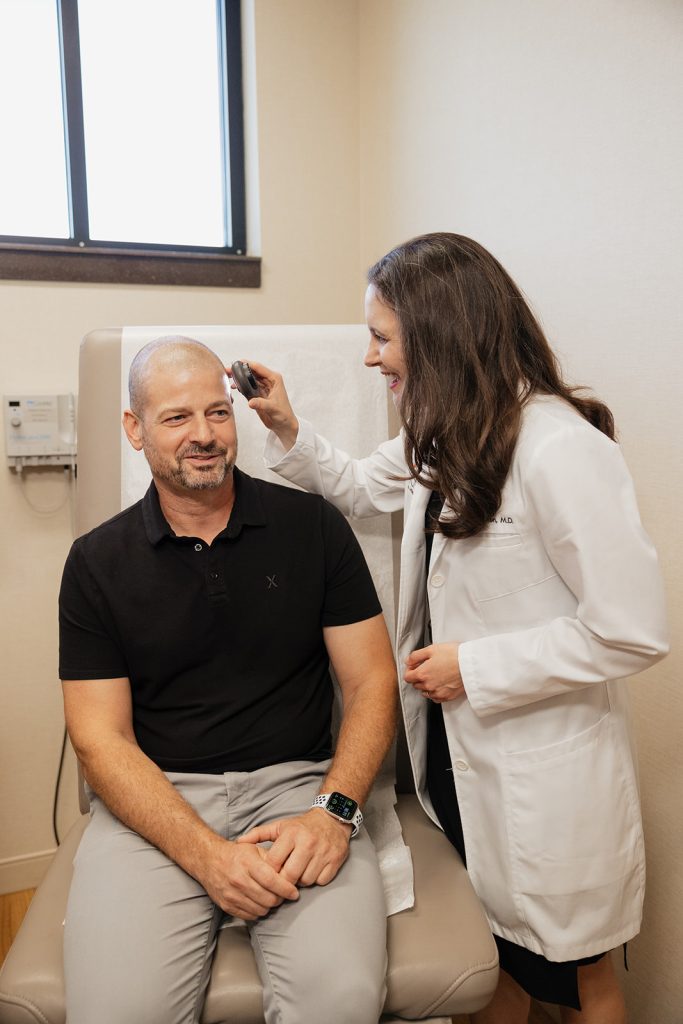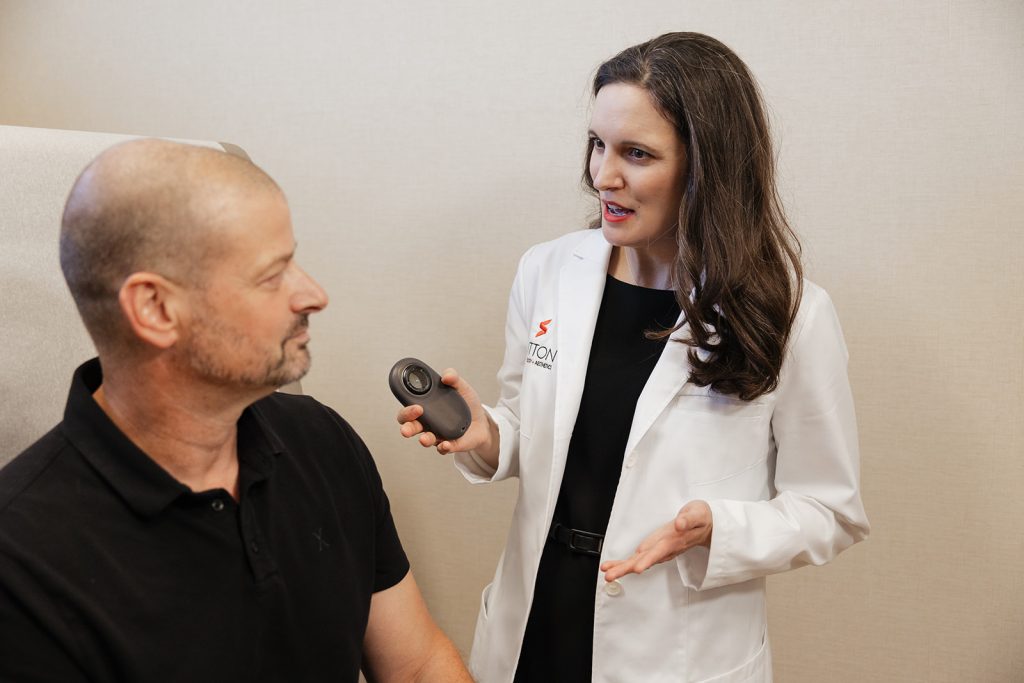Be Your Own Skin Advocate During Skin Cancer Awareness Month
May is Skin Cancer Awareness Month – a timely reminder to take charge of your skin health. Skin cancer is the most common type of cancer. There are many types of skin cancer, but there are three types that are most common: basal cell carcinoma, squamous cell carcinoma of the skin, and melanoma. At Sutton Dermatology’s Skin Cancer Center in Lincoln, Nebraska, we diagnose and treat all types of skin cancer.
If I could impart just one message to you, it would be this: be an advocate for yourself and your skin. If you notice a new mole, a changing mole, a new spot, or a sore that won’t heal, don’t wait – schedule an appointment with a dermatologist. Of course, not every new spot or sore is cancerous; however, it is important to advocate for yourself as early evaluation is critical and can be lifesaving.

When a patient comes in with a possible skin cancer, the first step is to do a biopsy to obtain the diagnosis. This is an in-office procedure. First, the area is marked and the location is documented in the chart. Next, the area is numbed with a local anesthetic. Then a small but representative piece of tissue is obtained. The biopsy is then reviewed by a dermatopathologist – a physician who specializes in diagnosing skin conditions under the microscope. Once we receive the biopsy report, which details the type of skin cancer and characteristics of the tumor, we work with the patient to create a personalized treatment plan based on their diagnosis, age, health, and medical goals.
Treatment options most often include destruction, excision, or Mohs micrographic surgery. At Sutton Skin Cancer Center we perform these procedures routinely. I often hear, “What is Mohs surgery?” Mohs micrographic surgery is a specialized type of skin cancer surgery. It is the gold standard treatment for skin cancer involving the head and neck, as well as some other specific sites. We perform Mohs surgery under local anesthesia in our surgical suites at both our Pine Lake and North 27th locations.
During Mohs surgery, the skin cancer is removed, the margins are checked that same day, and then once the tumor is completely gone, the area is closed. We use local numbing to make patients comfortable. At Sutton Skin Cancer Center, we have two fellowship trained and double board certified dermatologists and Mohs surgeons, myself and Dr. Leigh Sutton, and two board certified dermatologists, Dr. Margaret Kontras Sutton and Dr. Harms. Together we have treated and cured thousands of skin cancers.
It is the greatest honor to take care of patients during their skin cancer journey. Our team of dermatologists, physician assistants and nurse practitioners is extensively trained in detecting and treating skin cancer.
As we get ready for the warm summer months ahead, it’s time to refresh your knowledge of sun-protective measures and to schedule a full body skin cancer exam if you have concerns. Never hesitate to get a suspicious lesion checked out!

Elizabeth (Liz) Sutton, MD, is a contributing author to the Sutton Smart Skin Blog. Dr. Sutton is a board-certified dermatologist and fellowship-trained Mohs skin cancer surgeon at Sutton Dermatology + Aesthetics, with a special interest in skin cancer treatment, surgical dermatology, and promoting healthy skin for patients of all ages. A Lincoln native, she is proud to care for her community with advanced, compassionate dermatologic care.




Leave a Reply